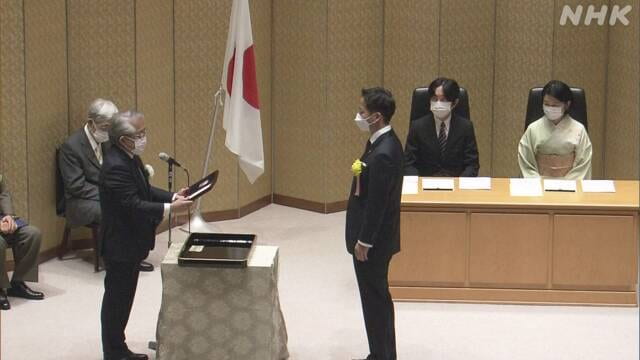Dreambuilder
Manuel Gómez inspires young people to believe in themselves
Manuel Gómez grew up in a barrio in Santa Ana in a large family that struggled to make ends meet. But when he looks back at his childhood, he doesn’t see poverty.
He remembers being captivated by nature’s beauty and the sound of grown-ups dreaming aloud in Spanish as they worked in the sugar beet fields in Colorado, where young Manuel was often at his mother’s side during her periodic stints of farm work.
His grandparents had immigrated to the United States from Mexico, and neither of his parents had gone beyond grade school. There were eight children, and his father’s work in construction was sporadic. But his grandfather tended a bountiful garden, and there was always plenty of food for the soul as well. From his father, a self-taught saxophonist, Gómez learned the joy of music. From his mother, he inherited a passion for poetry. He says he never felt disadvantaged, because he was surrounded by supportive family members and mentors who encouraged him to look beyond the borders of the barrio and believe in his ability to achieve whatever he set out to do.
A CREATIVE FORCE
Gómez has been offering that kind of encouragement to other young people ever since he left that world. The first in his family to go to college, he has established a distinguished career as a university educator and administrator dedicated to expanding educational opportunities for students from all backgrounds. A published poet, he also sets aside his administrative hat now and then to teach a poetry class or give a reading of his own work.
Gómez, who joined UCI three decades ago and was appointed vice chancellor of student affairs in 1995, recently served for nine months as interim vice president for educational outreach at the University of California Office of the President. He also was a member of the UC Outreach Task Force formed by the Regents in 1996 to develop new strategies to help prepare students from disadvantaged backgrounds for UC admission in the post-Affirmative Action era.
“Throughout his career at UC, Manuel Gómez has influenced thousands of lives. His vision and dedication have inspired students and outreach staff alike,” said Winston Doby, UC’s vice president for educational outreach.
Gómez sees outreach programs as a way to provide the kind of support for students that was such a powerful force in his early life.
“Most young people have some kind of positive aspiration, but they need encouragement to believe in themselves,” he says. “Through our outreach programs, we try to help them understand that their dreams are not just illusions.”
Over the past five years, 75,000 kindergarten through 12th-grade students in Orange County have participated in UCI outreach programs. More than 700 UCI faculty members and students serve as tutors and mentors. Most of these programs are offered under the auspices of UCI’s Center for Educational Partnerships, which Gómez helped establish in 1996 as part of a comprehensive strategy to improve teacher quality and academic performance in K-12 schools and community colleges.
Among UCI’s most innovative outreach initiatives is the award-winning Humanities Out There (HOT) program, founded by professor Julia Reinhard Lupton. HOT offers about 100 workshops each year in 35 Santa Ana classrooms where UCI students guide children through creative writing exercises and introduce them to such literary masters as Shakespeare and Homer.
Another highly acclaimed program is ArtsBridge, established by School of the Arts Dean Jill Beck. The program enlists UCI students to offer hands-on instruction in dance, digital art, drama, music and studio art. The success of UCI ArtsBridge prompted its expansion to eight UC campuses and seven other sites across the nation. The program reaches more than 20,000 K-12 students each year.
HOT and ArtsBridge are among the initiatives that have earned UCI a reputation for offering one of the most innovative and successful outreach programs in the UC system. But Gómez is now concerned about the potential impact of the state’s current budget crisis on UCI’s educational outreach efforts.
“While it is true that our academic core must be protected, our ability to enroll, educate and graduate the kind of students we take pride in depends on the well-being of our schools and community colleges,” he says. “Given the nature of the possible budget cuts to outreach, we will obviously be less capable of carrying out our partnership commitments with schools and community colleges. Leveling the academic playing field may be more difficult in the future.”
A SENSE OF PURPOSE
Still, nothing will stop Gómez from working to sustain—and strengthen—UCI’s outreach efforts, always with an eye on a larger goal that reflects his view of public education’s role of in society: developing knowledgeable, civic-minded, engaged citizens.
“Societal support for public education makes it possible for people from all kinds of backgrounds to come together and learn that they share a connection to each other as citizens of this country and that it is their responsibility to contribute to the overall common good,” he explains.
That’s what Manuel Gómez learned through the education that got him out of the barrio. Now he’s giving back, and he expects all those students who are being prepared for a college education through UCI’s outreach programs to someday do the same.
